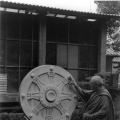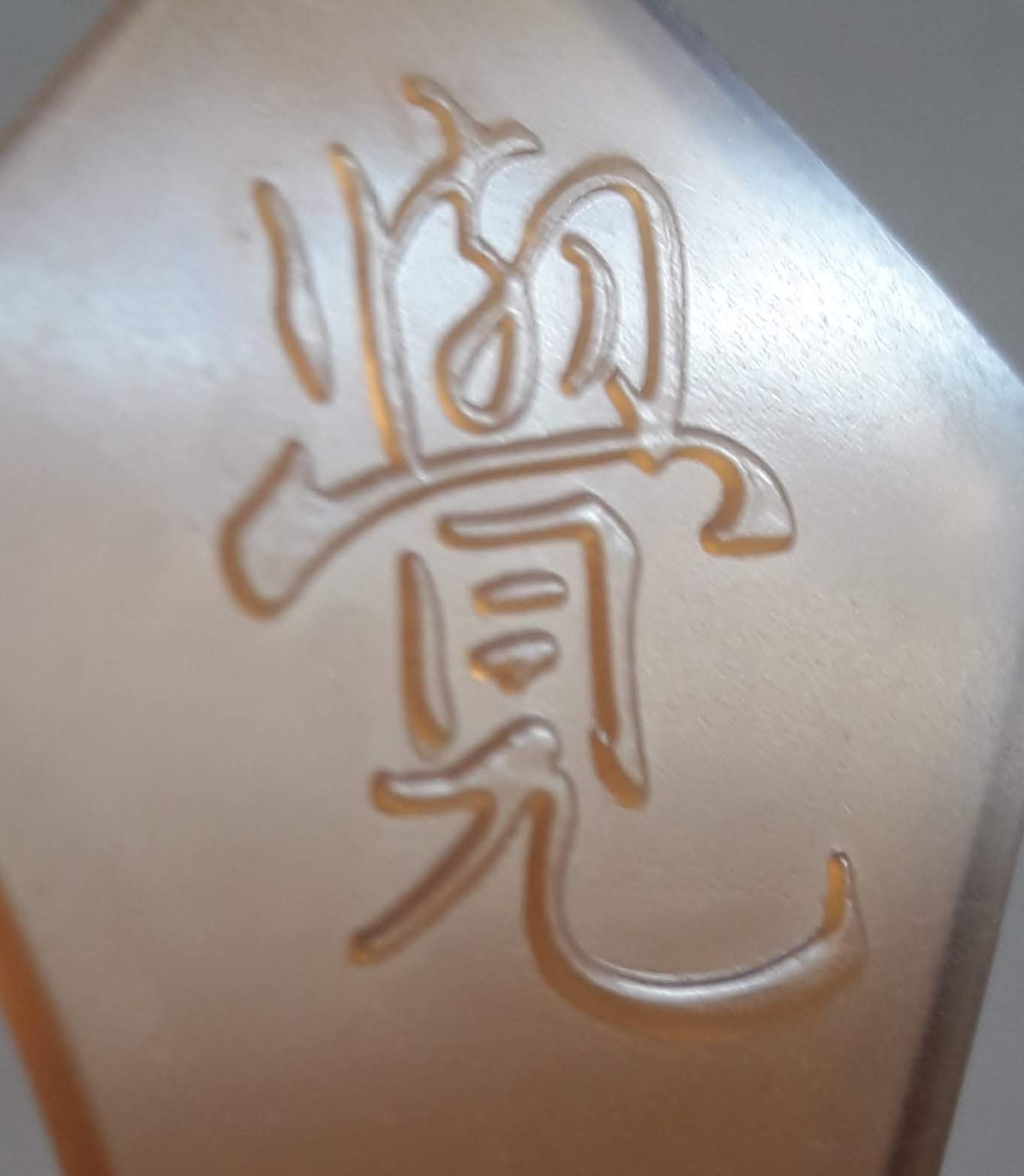Welcome home! Please contact lincoln@icrontic.com if you have any difficulty logging in or using the site. New registrations must be manually approved which may take several days. Can't log in? Try clearing your browser's cookies.
a chinese character
 ShanJieshi2
bahia blanca Veteran
ShanJieshi2
bahia blanca Veteran
I'm having trouble deciphering this Chinese ideogram
you can?
0

Comments
I am reliably informed it means Awaken / Awakened / Awakening
I think it's 覺, or "Bodhi"/"Awakening," further substantiating @Bunks's comment. Cursive and calligraphic Chinese is very hard to read, for me at least.
Bunks, can you ask your friend who reliably informed you if I am correct?
I’ll show you what she wrote as it probably answers your question.
觉 Awaken, Awakened, Awakening
According to google translate this 觉 means 'sleep' also this one too 覺...However it would seem that it can means number of things depending on how it's used in a sentence ..
Verb ='Feel' 'Sleep' 'Sense' 'Aware' 'Wake' 'Sight' 'Observe' 'Become aware of' 'Catch sight'
Noun = 'Sleep' 'Nap'
thanks to all!! They have been very well oriented!
Handwriting is difficult... but we have overcome it.
覺樹 bodhi tree
覺士 bodhisattva
大覺尊 Most honored Enlightened One
Makes sense. Her using the simplified characters from the Chinese mainland is the difference here. I think the cursive example is a traditional character though.
In Buddhist usage, there are three main dominant senses for this character. One is "realization, intuition, insight" and translates the Indian term "Bodhi" (i.e. "Awakening" or "Enlightenment") or even "Buddha" (i.e. "the Awakened")
The second usage is related to "understanding, comprehension; intelligence," and translates loosely the term "buddhi" (i.e. "intellect").
The last is "sensation, touch, contact, feeling, experience" and translates "pratisaṃvedayati" (i.e. "he is caused to experience") or even "vedanā."
From these, other senses are derived, like the modern "sleep." Ironically, this sense of "sleep" actually comes from "to awaken from sleep" (hence the older usage of "Awakening" for this character).
Imagine if, in order to say "There'll be three sleeps before Christmas," you said "There will be three awakenings before Christmas." That's how a verb for "to awaken" comes to mean "to sleep" and even becomes a counter for sleeps and naps. Random trivia.